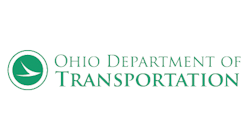ODOT Joins Renewable Hydrogen Fuel Cell Collaborative to Advance Clean Transportation in the Region
The Renewable Hydrogen Fuel Cell Collaborative (RHFCC) announced that the Ohio Department of Transportation has joined it in its mission to bring zero-emission hydrogen-powered transportation to the Midwest.
ODOT will now partner with the RHFCC to advocate for clean hydrogen transportation technology in hopes of bringing 65,000 new jobs and 250 hydrogen stations to Ohio — estimations laid out in the Hydrogen Roadmap for the U.S. Midwest Region published, in part, by the RHFCC in 2017.
Ohio currently ranks second in the U.S. for hydrogen fuel cell buses, one of which is part of the campus bus fleet at The Ohio State University where data is collected from both the bus and the refueling station for research purposes. The state is also home to a robust network of fuel cell component and material suppliers, ranging from cell manufacturers to integrators to end users.
“Our organizations were already united in our desire to lead the way to a healthier environment for all Ohioans,” said James A. Barna, chief engineer and assistant director of transportation policy for ODOT. “We are proud to partner with the RHFCC to further hydrogen fuel cell transportation initiatives here in Ohio.”
“SARTA is pleased to welcome ODOT as part of the RFHCC,” said Kirt Conrad, program mentor for the RHFCC and CEO of the Stark Area Regional Transit Authority in Canton. “As a leader in Ohio’s hydrogen economy, we see joining forces with ODOT as reinforcement for our efforts and look forward to collaborating with them as a valuable member of this partnership with the top agencies in the state.”
“Hydrogen fuel cell vehicles will be an important component of the alternative energy future of the transportation industry,” said David Cooke, research specialist at The Ohio State University Center for Automotive Research, home to one of the seven buses in the state and a hydrogen refueling station. “As the adoption rate of electric vehicles is increasing across all mobility platforms, it is important to study the wide variety of energy sources available and to optimize technology deployment with the application. We are excited for the opportunity to collaborate with ODOT and SARTA to study the future of a hydrogen transportation economy in the Midwest region.”
ODOT is taking part in all RHFCC meetings and initiatives effective immediately. ODOT will also pursue funding opportunities on behalf of the RHFCC and share resources with all its partners to reduce costs.



